Schedule
Chilli Crop Schedule
| Product Name | Fertilizers | |||||
|---|---|---|---|---|---|---|
| Poornima Kit | NPK Caps | Humigrow Nano Powder | Alp | Sonha-Bihan | ||
| Humic Acid | Chelated Multi-micronutrient |
PGP/PGR | ||||
| Land Reparation | week -2 | |||||
| Soil Treatment | week -1 | |||||
| Before Seed Sowing | week 0 | |||||
| Germination | week 1 | |||||
| Fruiting stage & Vegetative Flowering |
week 2 | 1 Kit | ||||
| week 3 | ||||||
| week 4 | ||||||
| week 5 | ||||||
| week 6 | 2 Caps | 120 gm | ||||
| week 7 | ||||||
| week 8 | ||||||
| week 9 | 1 Kit | |||||
| week 10 | 250gm | 250gm | ||||
| week 11 | ||||||
| week 12 | ||||||
| Formation Flowering/ |
week 13 | 2 Caps | 120 gm | |||
| week 14 | 250gm | 250gm | ||||
| week 15 | ||||||
| week 16 | week 17 | 2 Caps | 120 gm | |||
| Harvesting | ||||||
| Total Quantity | 2 Kit | 6 Caps | 360gm | 500gm | 500gm | |
| Broadcast | |
| Top Dressing | |
| Basal Dressing | |
| Soil Application | |
| Spray | |
| * | Optional |
NOTE: For the first year donot immidietaly substitute 100% chemical fertilizer with the SIESTO GREEN products, as the soil is used to chemical fertilizer, it may affect the output. So the best way to substitute is by reducing 50% of chemical input in the first year, 25% the following 2nd year, & then another 10% by the 3rd year. After the 3rd year use synthetic fertilizer / inorganic fertilizer if their is a requirement depending on the soil health.
CROP SCHEDULE FOR CHILLI
Sr. No.
Treatment / Application
Product
Dose /Acre
APPLICATION
Management
1
Vegetative – Dissolve in 20 to 200 ltr. of water as required for 1 acre of land and apply through Drip Irrigation or drench.
POORNIMA KIT
1 KIT
Apply after transplantation that is week 2 and then on week 9.
It is a balanced form of nutrients that includes NPK, Zinc, Cropforce NP, Humigrow NP, and Mycorrhiza NP
2
Vegetative – Mix all with the required amount of water and apply through drip irrigation, flood irrigation, or drenching as per farmer’s availability.
NPK + Humigrow
2 Caps + 120gm
Apply it in week 6, week 13 & week 17.
It is a balanced form of Nutrition that includes NPK.
3
Flowering – Mix both in 20 – 200 litres of water as per requirement and spray it in the plants.
ALP + Sonhabihan
250gm + 250gm/ 200 lit. of water
Apply it in week 10 (When flowerings are seen) and week 14.
It is a Micronutrient and PGP that helps in Growth, Fruit set, and the quality of the produce.
PEST ATTACKS, BACTERIAL, OR FUNGAL MANAGEMENT
.
PEST / BACTERIAL / FUNGALIDENTIFICATION IN CROPSYMPTOMSSUGGESTED PRODUCTDamping Off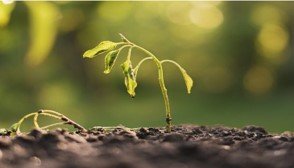 It is characterized by the development of disease after seedlings have emerged out of the soil but before stems are lignified.Indofa + BacillusDie-back and Anthracnose (Fruit rot)
It is characterized by the development of disease after seedlings have emerged out of the soil but before stems are lignified.Indofa + BacillusDie-back and Anthracnose (Fruit rot)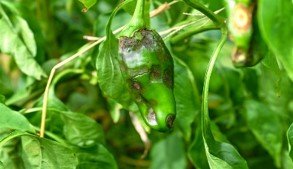 Small, circular to irregular, brownish-black scattered spots appear on leaves.Indofa + BacillusChoeanephora blight/ Wet rot
Small, circular to irregular, brownish-black scattered spots appear on leaves.Indofa + BacillusChoeanephora blight/ Wet rot Plants from seedling to early flowering stage are susceptible.Indofa + Bacillus + Bacillus Subtilis + TrapsPowdery mildew
Plants from seedling to early flowering stage are susceptible.Indofa + Bacillus + Bacillus Subtilis + TrapsPowdery mildew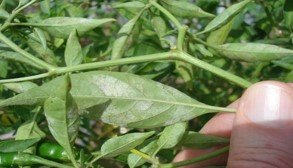 The white powdery coating appears mostly on the lower surface and occasionally on the upper surface.Life-line + Indofa + BT + BacillusCercospora Leaf spot
The white powdery coating appears mostly on the lower surface and occasionally on the upper surface.Life-line + Indofa + BT + BacillusCercospora Leaf spot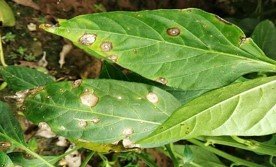 Circular spots with brown margins and a grey centre appear on leaves.Indofa + BacillusBacterial Leaf spot
Circular spots with brown margins and a grey centre appear on leaves.Indofa + BacillusBacterial Leaf spot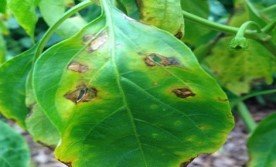 Lesions on the leaf begin as circular. Spots become necrotic with brown centres with chlorotic borders.Indofa + BacillusAlternaria Leaf spot
Lesions on the leaf begin as circular. Spots become necrotic with brown centres with chlorotic borders.Indofa + BacillusAlternaria Leaf spot The fungus attacks the foliage causing characteristic leaf spots and blight. Early blight is first observed on the plants as small, black lesions mostly on the older foliage.Indofa + BacillusFusarium Wilt
The fungus attacks the foliage causing characteristic leaf spots and blight. Early blight is first observed on the plants as small, black lesions mostly on the older foliage.Indofa + BacillusFusarium Wilt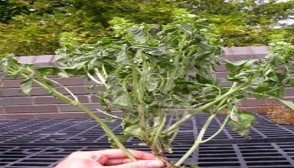 The first symptom of the disease is the clearing of the veinlets and chlorosis of the leaves.Indofa + Bacillus + LifelinePod Borer
The first symptom of the disease is the clearing of the veinlets and chlorosis of the leaves.Indofa + Bacillus + LifelinePod Borer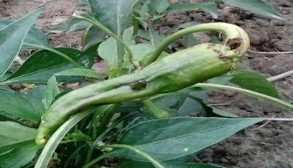 Internal tissues are eaten severely and completely hollowed out. While feeding the caterpillar thrust its head inside leaving the rest of the body outside.Meta + Traps + BTTobacco Caterpillar
Internal tissues are eaten severely and completely hollowed out. While feeding the caterpillar thrust its head inside leaving the rest of the body outside.Meta + Traps + BTTobacco Caterpillar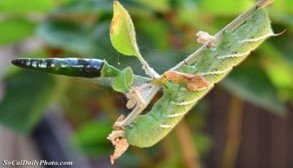 Pest breeds throughout the year, and Moths are active at night. Adults live for 7-10 days.BT + MetaSpider Mites / Yellow mites
Pest breeds throughout the year, and Moths are active at night. Adults live for 7-10 days.BT + MetaSpider Mites / Yellow mites The infected leaves develop crinkles and curl downwards.Lifeline + Traps + Meta + BTRoot-knot nematodes
The infected leaves develop crinkles and curl downwards.Lifeline + Traps + Meta + BTRoot-knot nematodes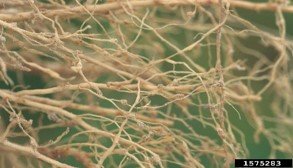 In infected plants in patches in the field, the Formation of galls on the host root system is the primary symptom.Meta + BT + PacliqThrips
In infected plants in patches in the field, the Formation of galls on the host root system is the primary symptom.Meta + BT + PacliqThrips The infected leaves curl upward, crumble, and shed.Lifeline + Traps + Meta + BTAphids
The infected leaves curl upward, crumble, and shed.Lifeline + Traps + Meta + BTAphids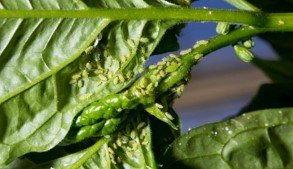 Appear on the tender shoots, leaves, and on the lower surface of the leaves. Suck the sap and reduce the vigour of the plant.Lifeline + Traps + Meta + BT
Appear on the tender shoots, leaves, and on the lower surface of the leaves. Suck the sap and reduce the vigour of the plant.Lifeline + Traps + Meta + BTNUTRITION DEFICIENCY
NUTRIENT
IDENTIFICATION
SYMPTOMS
SUGGESTED PRODUCT
Nitrogen
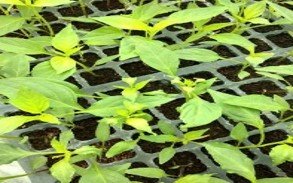 The older and lower leaves on your plants will start to become yellow, wilt, and drop off. This is because the younger leaves higher up the plant will start to steal the nitrogen from these older leaves.
Azoss Caps
Phosphorus
The older and lower leaves on your plants will start to become yellow, wilt, and drop off. This is because the younger leaves higher up the plant will start to steal the nitrogen from these older leaves.
Azoss Caps
Phosphorus
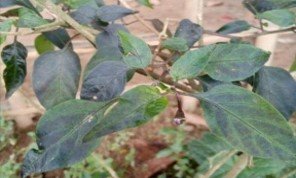 Dark green/purple leaves and Small leaf size
PSB Plus
Potash
Dark green/purple leaves and Small leaf size
PSB Plus
Potash
 A potassium deficiency, on the other hand, results in deformed or drooping leaves, which later form brown margins and lead to cracks in the fruit skins.
bio Potash caps
Iron
A potassium deficiency, on the other hand, results in deformed or drooping leaves, which later form brown margins and lead to cracks in the fruit skins.
bio Potash caps
Iron
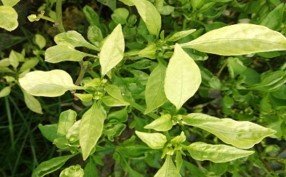 Poor seed germination, Reduced leaf colour, and Weakness or wilting
ALP
Boron
Poor seed germination, Reduced leaf colour, and Weakness or wilting
ALP
Boron
 Slow plant growth, and Stunted vegetation
ALP
Manganese
Slow plant growth, and Stunted vegetation
ALP
Manganese
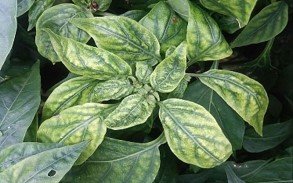 Slow plant growth, Stunted vegetation, and undeveloped root systems.
ALP
Zinc
Slow plant growth, Stunted vegetation, and undeveloped root systems.
ALP
Zinc
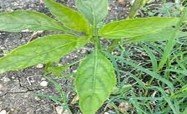 New leaves turn white, pale yellow, bronze, or yellow. Leaf tissues die due to chlorosis. Clustered leaves on the stems. Stunted growth, and Narrow leaves.
ZSB Caps
Sulphur
New leaves turn white, pale yellow, bronze, or yellow. Leaf tissues die due to chlorosis. Clustered leaves on the stems. Stunted growth, and Narrow leaves.
ZSB Caps
Sulphur
 Light green colouration. More leaves change colour and the light green colour changes in places to deep yellow.
Sulphur Caps
Light green colouration. More leaves change colour and the light green colour changes in places to deep yellow.
Sulphur Caps
 The older and lower leaves on your plants will start to become yellow, wilt, and drop off. This is because the younger leaves higher up the plant will start to steal the nitrogen from these older leaves.
Azoss Caps
Phosphorus
The older and lower leaves on your plants will start to become yellow, wilt, and drop off. This is because the younger leaves higher up the plant will start to steal the nitrogen from these older leaves.
Azoss Caps
Phosphorus
 Dark green/purple leaves and Small leaf size
PSB Plus
Potash
Dark green/purple leaves and Small leaf size
PSB Plus
Potash
 A potassium deficiency, on the other hand, results in deformed or drooping leaves, which later form brown margins and lead to cracks in the fruit skins.
bio Potash caps
Iron
A potassium deficiency, on the other hand, results in deformed or drooping leaves, which later form brown margins and lead to cracks in the fruit skins.
bio Potash caps
Iron
 Poor seed germination, Reduced leaf colour, and Weakness or wilting
ALP
Boron
Poor seed germination, Reduced leaf colour, and Weakness or wilting
ALP
Boron
 Slow plant growth, and Stunted vegetation
ALP
Manganese
Slow plant growth, and Stunted vegetation
ALP
Manganese
 Slow plant growth, Stunted vegetation, and undeveloped root systems.
ALP
Zinc
Slow plant growth, Stunted vegetation, and undeveloped root systems.
ALP
Zinc
 New leaves turn white, pale yellow, bronze, or yellow. Leaf tissues die due to chlorosis. Clustered leaves on the stems. Stunted growth, and Narrow leaves.
ZSB Caps
Sulphur
New leaves turn white, pale yellow, bronze, or yellow. Leaf tissues die due to chlorosis. Clustered leaves on the stems. Stunted growth, and Narrow leaves.
ZSB Caps
Sulphur
 Light green colouration. More leaves change colour and the light green colour changes in places to deep yellow.
Sulphur Caps
Light green colouration. More leaves change colour and the light green colour changes in places to deep yellow.
Sulphur Caps


